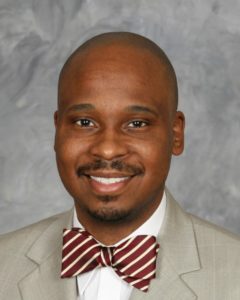- This event has passed.
Webinar
Addressing Implicit Bias in the Age of COVID-19
Thursday, August 13, 2020 @ 8:00 am - 5:00 pm
COVID-19 has caused organizations and individuals to make significant and unexpected adjustments in their personal and professional lives. While this new reality involves the reduction of in-person interactions with others, and thus the likelihood for certain biases playing out, other mechanisms for the expression of implicit bias have arisen.
Dr. Marks’ engaging and interactive workshop will not only provide a clear description of implicit bias, but also describe its causes, consequences, measurement, potential solutions, and implications for employees and organizations in the age of COVID-19.
Please join us for a two-part implicit bias 101 workshops to understand 1) how implicit bias shows up in ourselves and in organizations, 2) the dynamics of implicit bias in the virtual workplace, 3) racial disparities in the infections and casualties of the virus, and 4) the impact of the virus on perceptions of various groups in the U.S. and 5) how you can change your personal and organizational behaviors and practices.
The full curriculum for the implicit bias 101 training will be covered over the course of two days. Please plan to attend both sessions.
Day 1: Thursday, June 11th (1:00 pm – 2:30 pm PDT)
Day 2: Monday, June 15th (10:00 am – 11:30 am PDT)
Speaker
 Dr. Bryant T. Marks, Sr., Chief Equity Officer, National Training Institute on Race and Equity, [email protected]
Dr. Bryant T. Marks, Sr., Chief Equity Officer, National Training Institute on Race and Equity, [email protected]
Reverend Dr. Bryant T. Marks, Sr. is a minister, researcher, trainer, and award-winning educator. He is the Founder and Chief Equity Officer of the National Training Institute on Race and Equity and a tenured professor of Psychology at Morehouse College. He served on President Obama’s Board of Advisors with the White House Initiative on Educational Excellence for African Americans and as a senior advisor with the White House Initiative on Historically Black Colleges and Universities. Dr. Marks was also a contributor and trainer with the Obama Administration’s My Brother’s Keeper (MBK) and 21st Century Policing programs. Between 2017 and 2019, Dr. Marks provided implicit bias training to over 40,000 employees and volunteers in law enforcement; city, county, and federal government; corporations; education; and healthcare. Clients include the Los Angeles Police Department, Los Angeles County, the State of California, New York City Dept. of Education, Kaiser Permanente, Google, and Price Waterhouse Coopers.
Dr. Marks holds a B.A. in Psychology and a minor in Economics from Morehouse College, and an M.A. and Ph.D. in Social Psychology from the University of Michigan. Dr. Marks conducts research and professional development in the areas of diversity and implicit bias, Black male psychology and development, and personal passion and productivity. Dr. Marks is married to Dr. Kimberly Marks and father to Kim, Zion-Trinity, and Bryant II.
Background
We all have biases. The impact of our implicit bias on others, however, significantly depends on our social and professional roles in society. The biases held by police officers, physicians, prosecutors and criminal court judges can literally determine whether someone lives or dies. Biases held by teachers and school administrators affect educational practices and student outcomes. And for the nonprofit sector, implicit biases affect the priorities set and supported by nonprofit organizations, as well as the way service providers, community organizers, and other grass-roots organizations interact with the people they serve.
Research has revealed that many Americans show a positive implicit bias toward White Americans vs. African Americans, young vs. old, and fit vs. obese. (Curious about your own? Check here for some insight). Repeated exposure to certain associations between specific groups and specific traits/characteristics are often very strong and difficult to undo without deliberate effort or ongoing training. It is possible, however, to implement practices or policies that reduce the likelihood that implicitly biased beliefs will lead to biased behaviors.
At this workshop, we will explore the full range of implicit bias, broadly defined as the varying degrees of stereotyping (exaggerated beliefs about others), prejudice (dis/liking others), and/or discrimination (unequal treatment of others) below conscious awareness in a manner that typically benefits oneself or one’s group.
An overview of follow-up activities and materials that will reinforce workshop information and increase the likelihood of long-term impact.
Accommodations for People with Disabilities
If you have a disability and require accommodation in order to fully participate in this activity, please contact [email protected] or (213) 680-8866. You will be contacted by someone from our staff to discuss your specific needs.
